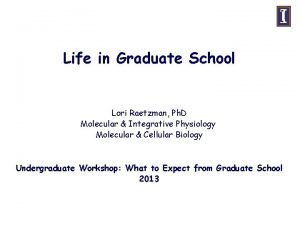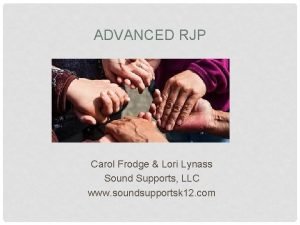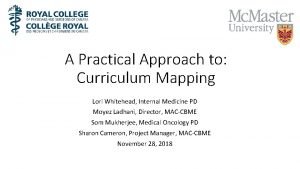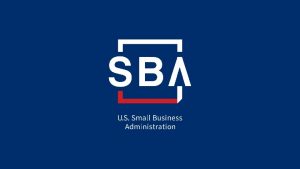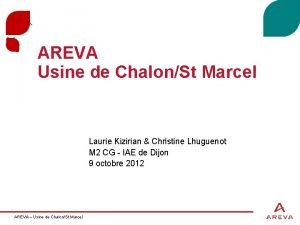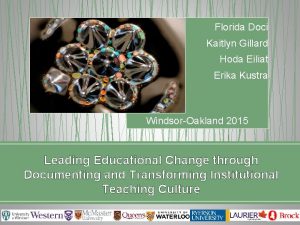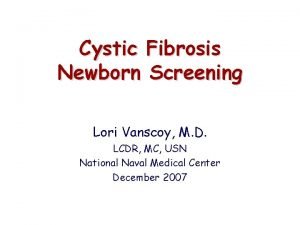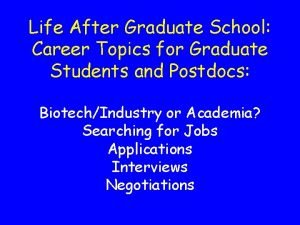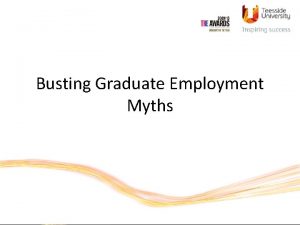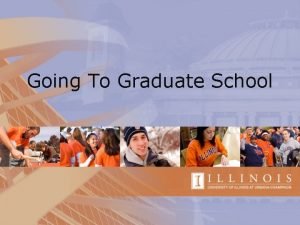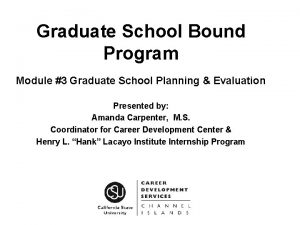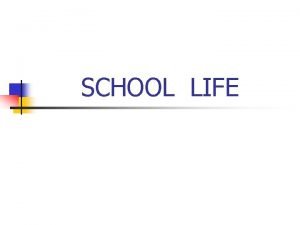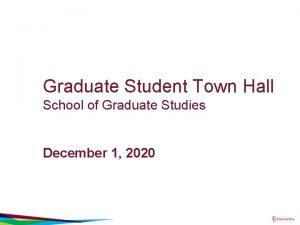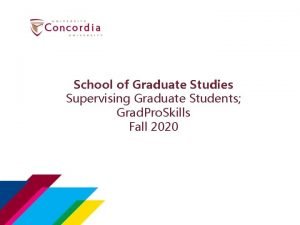Life in Graduate School Lori Raetzman Ph D

















- Slides: 17

Life in Graduate School Lori Raetzman, Ph. D Molecular & Integrative Physiology Molecular & Cellular Biology Undergraduate Workshop: What to Expect from Graduate School 2013

Applications for admission to Graduate School (2012 data)

A big change from college! • No longer a “student”, but an apprentice scientist – Like school and a job, combined • Course work is secondary (need to maintain GPA 3. 0) • Expectation: when you receive a Ph. D, you have become an independent scientist. • Research, research!!!

What will I learn as a grad student? • Do experiments AND Design experiments AND Interpret results • Read scientific literature • Write: papers, grant proposals • Present: – your own data- lab meeting, department seminar, national meeting – other’s data- journal club – teaching in class

What will my office look like? • aka The Lab • Grad students, post docs, technicians, undergrads

A typical working day in graduate school… • First thing in the morning: start experiments, which can take a few hours to several days to complete. • During the down time of the experiments: – read the literature – design the next experiments – attend departmental seminar or lab meeting – go to class – fulfill TA duty – meet with your advisor – chat with your labmates *** You need to be able to multitask! • May need to come back after dinner to finish up.

Summer is different than the school year

Life outside of the lab in graduate school • You will most likely be paid (research assistantship, teaching assistantship, or fellowship) to live comfortably, especially in a college town like C-U. • You can have a family life, even kids. • You can have hobbies outside of research (if you are efficient and organized with your time).

The Research: where to start • Rotations in 2 -4 labs or direct admit into a lab • Your thesis advisor will suggest a research project or two as your potential thesis project. – Likely on a project funded by NIH or NSF • Your thesis lab becomes your home for the duration of your graduate career, and your thesis advisor is the single most important figure in your graduate school life.

The Research: the expectation and your goal • YOU are now in charge of a real research project (it’s not a lab course!). • Your experiments/projects can fail. • Strive for publishable, and high-impact, research results (and therefore a successful thesis). • Ultimate goal: become an independent thinker/scientist, be able to identify important questions, design a research project and execute it successfully. ** It is NOT important which sub-field your thesis project is in.

The most important factors to ensure success • Excited about your research and therefore willing to work very hard (typically 50 -60 hrs per week). • Perseverance is absolutely necessary! • Effective communication between you and your advisor. • A supportive lab and/or department environment (for both technical and moral support). • And some luck…

Timeline of a typical Ph. D program • Year 1 -2: Choose a thesis lab. Complete the course work. • Year 2 -3: Pass one or two candidacy exams (“qualifying” or “preliminary” exams) • Year 1 -6 (or longer): Accomplish a body of research work that is the equivalent of two or more scientific papers. • Final year: Write thesis (usually consists of those papers you published), defend it in front of your committee.

86% of graduates in life sciences receive Ph. D in ≤ 7 years; Average time to degree: 5 -6 years.


Enjoy the ride!

What do I do with my degree afterwards? • Research labs – Staff scientist to principle investigator – Government (CDC), industry (Merck), academia (U of I) • Teaching • Graduate courses, undergraduate courses, high school, etc, Administration grants administration, editing journals or textbooks, Combining with other degree or talents graphic design for science text books, patent law, crime labs, inventions of new diagnostics, astronaut, consulting work, etc.

(2007 data)
